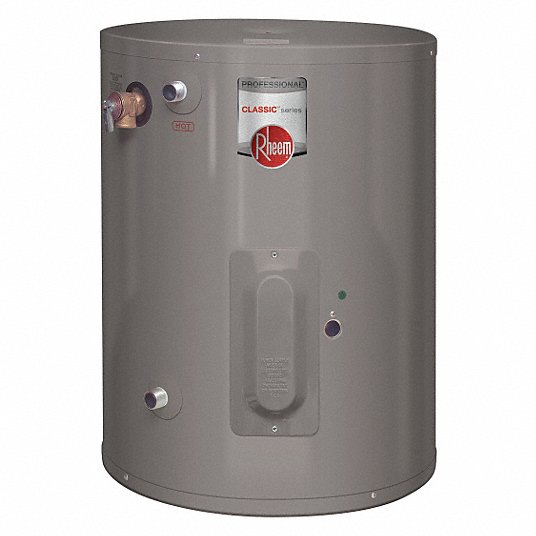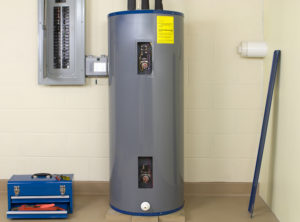Important Procedures for Residential Property Owners Handling Broken Water Heaters
Important Procedures for Residential Property Owners Handling Broken Water Heaters
Blog Article
Just how do you really feel on the subject of How to Avoid a Broken Hot Water Heater?

Whether it is located in the cellar or a separate space, busted hot water heater can cause anxiety. A typical device holds 80 gallons, so an over night leak will certainly result in a flooding. This results in significant residential property damage with drenched wall surfaces and floorings. Having no warm water supply is likewise bothersome. If you are managing these problems, remember of the following:
Call the Plumber
After doing the initial 2 security steps, you have to call your plumber to come right away to take care of a burst water heater. There are typically indicators that your aging water heating unit has sediment buildup in the inside.
Instead, as soon as you spot these indications, have an expert come to inspect your water heating system container. Usually, water heating systems have a life expectancy of concerning 8 to 12 years.
Cut Off the Cold Water Supply
Cut off the containers touch water supply from the resource. When your storage tank is in excellent problem, the chilly water quits loading up when the storage tank is full. If you can not locate it or reach it, you need to turn off that major water supply line outside your building.
Shut Off Source Of Power
Before calling the plumber, turned off a gas hot water heater by turning the temperature dial. This is generally situated on top of the thermostat. Change off the circuit breaker if you have a design that runs on electrical power. This will certainly avoid electrocution, especially if there is a leak as water is a conductor. Normally, the heating element turns off when the water strikes a particular temperature level. With a broken storage tank, it may malfunction. Sufficing off guarantees you remain risk-free.
Tidy up Home
After calling the plumber, paper damages by making note as well as images so you can claim your house owner's insurance policy. From there, start the prompt cleanup. Secure any kind of crucial possessions to avoid further soaking. After that, get rid of any standing water to avoid mold and mildew as well as mold development. Use that to drain the water if you have a submersible water pump. Or else, the standard bucket method will certainly likewise work. Attempt to mop out everything, including walls and wall surfaces. Maintain them running to keep air flowing if you have an electric follower and also dehumidifier. This will certainly aid hinder mold and mildew development.
Bear in mind, if you observe any problems with your hot water heater, call the pros as soon as possible. You can not take this issue gently because a faulty thermostat can elevate water temp to an alarmingly high degree, bring about accidental burns. A broken heating unit stress safety valve can likewise trigger a surge. For finest outcomes, get an annual check so your system gets evaluated, cleaned up, drained pipes, as well as replenished, ensuring optimal efficiency.
After doing the very first two security steps, you should call your plumber to come right away to deal with a burst water heating system. Instead, as quickly as you identify these indications, have an expert come to inspect your water heater container. Before calling the plumber, shut off a gas water heating unit by turning the temperature dial. If you have a submersible water pump, utilize that to drain the water. Remember, if you discover any issues with your water heating unit, call the pros right away.
Common Water Heater Issues and What You Should Do
What Type of Water Heater Do You Have?
Before we begin it’s first important that you identify the type of water heater you have on your property. There are two main types of water heaters out there: conventional and high efficiency.
Both of these types of products typically use either gas or electricity to heat power. There are also solar water heaters that use a thermal collector on the roof or yard to heat the water.
While these models are not as common, they can cut heating costs in half. In this article, we will focus on conventional and high efficiency.
Not Enough Hot Water
This problem is common if you live in an apartment or a house with a lot of people. Too many people use the hot water supply in the tank and the machine struggles to produce more in a timely fashion.
There’s a variety of solutions to this problem, but an easy method is simply to adjust the temperature dial on your heater and wait thirty minutes.
If you have an electrical water heater, then a power surge caused by the device may cause the circuits to trip.
You should contact an electrician quickly if this issue keeps happening — it means wiring issues are causing the machine to draw more power than it needs. You may also want to try draining your water heater.
The process of draining removes the hard water sediments that cause your machine to run less efficiently. If you want a full walk-through of how to drain water your water heater tank, then make sure to read our article before you begin.
If none of these solutions fix the problem, then the issue likely lies in a malfunction component — likely a pressure relief valve or heating element.
Changing Water Temperatures
Often it’s a joke that some showers have two temperatures: scolding hot and ice cold. Unfortunately, this common feature can be a symptom of a bigger problem.
If you notice this temperature change when you shower or do the dishes, then you should check the thermostat on the side of your water heater. First, make sure it’s set to your desired temperature.
If it still exhibits drastic temperature changes, then you may need to replace the thermostat or the heating unit inside the product. The problem may also lie in the size of the product. Remember that tanks should hold roughly 20 gallons of water per person living in the house.
A Leak in the Water Heater
A water heater leak can cause serious water damage to the floor and electrical components near the device. Remember that you should always turn off the gas or electricity and let the device cool down before inspecting for a problem.
You may be able to fix the leak by tightening screw and pipe connections as these are common causes of minor leaks. However, if you notice a substantial leak at the base of the water heater, then you should contact a technician to inspect and replace it.
Rumbling Sounds
Rumbling sounds are a sign of a serious water heater issue. Unusual sounds may come from burning sediments or malfunction heating components. If you think you hear your heater boiling, then you should turn it off immediately.
This symptom is a sign of building pressure in your tank which could cause it to explode. You can likely solve this problem by draining your tank and clearing out any sediments. However, if the problem persists you may want to call a professional.
Rusty or Smelly Water
If your water smells then there is likely rust or bacteria in your water tank. These problems can cause orange discoloration and a smell like rotten eggs. However, you should first make sure that your tank is the issue and not the water source itself.
Run cold water and see if the smell persists. If the smell only comes from hot water, then the problem is the water heater. If not, then it’s the water source. If the problem comes from your tank, then it’s likely a malfunctioning anode rod.
An anode rod is responsible for cleaning any bacteria from the tank, so this is the most likely symptom. Unfortunately, changing an anode rod requires extensive knowledge of the system. As such, you will likely need the help of a professional.
Poor Water Flow
Changes in the water pressure that comes out of your shower or sink is likely a sign of sediment buildup at the bottom. Follow our previous advice — drain the tank and flush out any of the sediments.
If the problem persists, then you’ll need to check the pipes around your device. Hire a professional plumber to clean or replace the pipes around the water heater.
https://happyhiller.com/blog/common-water-heater-issues-and-what-you-should-do/

I stumbled upon that post about How to Avoid a Broken Hot Water Heater when scouting around the internet. Enjoyed our piece? Please share it. Let someone else locate it. We treasure reading our article about Water Heater Repair.
Visit Url Report this page